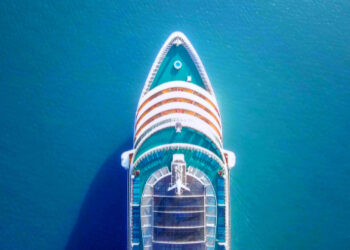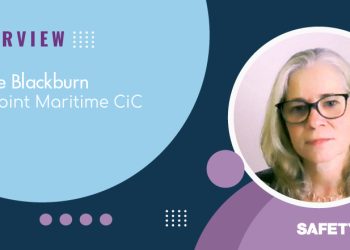According to STCW Convention, ratings must meet minimum standards of medical fitness, minimum age (if designated with watchkeeping duties), competence (if designated with watchkeeping duties), and seagoing service time (if designated with watch- keeping duties).
- STCW Convention at a glance
- STCW Convention: Terms and Definitions
- Certificates needed for compliance with STCW
- How seafarers can get their STCW certificates
- STCW Convention: General requirements for officers
- STCW Convention: General requirements for ratings
- STCW: How to obtain a certificate of competency as Master
- STCW: How to obtain a certificate of competency as Chief Mate
- STCW: How to obtain a certificate of competency as Navigational Watch
- STCW certificates according to function and type of vessel
- Training issues under STCW: What you should know
- STCW: Certificates and documentary evidence needed onboard
- Alcohol and drug consumption onboard: Taking prevention measures
- STCW: Setting the hours of rest for watch personnel
Ratings fall under three general categories; those:
- forming part of a watch (deck or engine)
- undergoing training
- not assigned watch-keeping duties and
Ratings who are not assigned watch-keeping duties or those still undergoing training are not required to hold watch-keeping certificates. All other certification requirements for ratings depend on the functions performed on board.
In addition, the STCW Convention includes chapters to provide details of the exact standards of competence as follows:
- Chapter II – master and deck department
- Chapter III – engine department
- Chapter IV – radio personnel
- Chapter V – training requirements for personnel on certain types of ships
- Chapter VI – emergency, occupational safety, medical care and survival functions
These chapters should be read in conjunction with the respective section of part A of the STCW Code.
Ratings assigned watch-keeping duties
Ratings forming part of a watch (deck or engine) need to be specifically certified for this function. For example: seafarers who are part of a navigational watch, they need to hold a certificate known as ‘rating forming part of a navigational watch’ certificate. On the other hand, those part of an engineering watch, they need to hold a certificate known as ‘rating forming part of an engineering watch’ certificate.
Seafarers who have the appropriate competencies to become able seafarer deck or able seafarer engine under the new provisions II/5 and III/5 must first have become proficient watchkeepers. However if they served for a period of not less than one year as a rating in the relevant capacity before the convention came into force for the administration issuing their certificate, then they may be considered to meet the competence requirements and will be certified accordingly, without needing to undergo any further training.
The above may also apply to integrated ratings under the new provisions of VII/2.4.
Ratings assigned watch-keeping duties should meet the following competence requirements which do not apply to ratings on ships of below 500 gross tonnages:
- Steer the ship and comply with helm orders issued in English (covers the use of magnetic and gyro compasses, helm orders, change over from automatic pilot to hand steering device and vice-versa).
- Keep a proper look-out by sight and hearing (covers the responsibilities of a look-out including reporting the approximate bearing of a sound signal, light or other object in degrees or points).
- Contribute to monitoring and controlling a safe watch (covers shipboard terms and definitions, use of internal communication and alarm systems, have the ability to understand orders and to communicate with the officer of the watch in matters relevant to watch-keeping duties, be familiar with the procedures for the relief, maintenance and hand-over of a watch, the information required to maintain a safe watch and basic environmental protection procedures).
- Operate emergency equipment and apply emergency procedures (covers knowledge of emergency duties and alarm signals, knowledge of pyrotechnic distress signals, satellite EPIRB’s and SARTS, avoidance of false distress alerts and action to be taken in the event of accidental activation).
Ratings forming part of engineering watch
Ratings forming part of engineering watch should meet the following competence requirements which do not apply to ratings on ships of below 750kW in propulsion power:
- Carry out a watch routine appropriate to the duties of a rating forming part of an engine room watch, and communicate effectively in matters related to watchkeeping duties (covers terms used in machinery spaces and the names of machinery and equipment, engine room watch-keeping procedures, safe working practices in engine-room operations, basic environmental protection procedures, use of internal communications systems, engine room alarm systems, and ability to distinguish between the various alarms with special reference to re extinguishing gas alarms).
- Keep a boiler watch and maintain the correct water level and steam pressure (covers safe operation of boilers).
- Operate emergency equipment and apply emergency procedures (covers knowledge of emergency duties, escape routes from machinery spaces, familiarity with the location and the use of fire fighting equipment in machinery areas).
Certificates for ratings forming part of a watch are not subject to revalidation. Other certificates are subject to refresher training
Under the convention, certificated watch-keeping ratings are not required to have an endorsement of recognition when serving on ships registered under the flag of another country. However, the administrations of some foreign countries require and issue endorsements for ratings forming part of a watch and other certificates relating to specific functions (tanker training, for example).
Progression through the ranks, particularly from rating to officer, is possible under STCW. However, in such cases, seafarers will need to complete approved seagoing service and complete an approved programme of training. Under the 2010 STCW Convention the requirement for training books is extended to the able seafarer deck or engine.
Duties on joining a ship
All ratings need to complete a period of ship-specific familiarization training, including security before being assigned any shipboard functions. There is no certificate awarded for this, but a record should be kept of it in the ship’s official logbook. This requirement applies to any member of the crew, including hotel staff in passenger ships.
Basic safety training
Ratings serving on any type of ship who are designated with safety, security and pollution prevention responsibilities in the operation of the ship need basic safety training. Furthermore, such training should be documented as having taken place within five years of the ratings being assigned to their duties. This requirement applies to practically all ratings serving on merchant ships as well as to ratings undergoing training.
As per STCW Convention, Ratings’ basic safety training must cover:
- personal survival techniques
- basic fire prevention and fire fighting
- elementary first aid, and
- personal and social responsibilities.
From the above, ratings should hold documentary evidence to demonstrate competence in these functions within the previous five years. For example, this may be in the form of record of drills or letters from a training centre.






























































